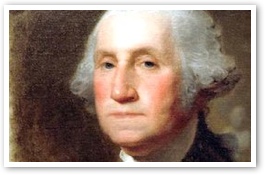Patriotism
- FATHER GEORGE W. RUTLER
The extended Independence Day weekend occasions some reflections on patriotism.
 |
The word is variously defined. Tolstoy called it an absolute vice, the essence of stupidity and immorality. In a famous essay in the 1980s, shortly after he converted to Catholicism, the Scottish philosopher, Alasdair MacIntyre, called it a central moral virtue. He drew on Augustine and Aquinas to shape his case: ". . . if I do not understand the enacted narrative of my own individual life as embedded in the history of my country . . . I will not understand what I owe to others or what others owe to me, for what crimes of my nation I am bound to make reparation, for what benefits to my nation I am bound to feel gratitude. Understanding what is owed to and by me and understanding the history of the communities of which I am a part is . . . one and the same thing."
Not long before St. Peter was crucified by a mad emperor, he had declared: "Honor all people. Love the brotherhood. Fear God. Honor the king" (1 Peter 2:17). This is more than pragmatic politics. Like St. Peter, St. Thomas More got the order of obedience right, saying that he was "the King's good servant, but God's first." A true patriot would not think of honoring God as a mere ruler, nor fearing a mere ruler as God.
Just as there was an amazing explosion of artistic talent concentrated in Renaissance Italy, so too was the American Revolution a time of extraordinary acumen on display. George Washington had all the gifts needed to be a true Father of the Country. Alexander Hamilton put his unsurpassed genius to work in various ways of national service. Others knew the temptations of envy and venality, but managed to subsume them under a higher cause.
Sometimes around July 4, I make a case for the widely misunderstood King George III, most recently on the Crisis Magazine website. There still are people, unthinking thralls of cliché, who call him a "tyrant." The King himself said that George Washington was "the greatest man in the world." Had they ever met, they would have enjoyed each other's company.
However one defines patriotism, Benjamin Franklin's words still obtain — to paraphrase: We have been given a republic, if we can keep it. The patriot's obligation to live a life of virtue is best kept by knowing the difference between earthly and heavenly cities. Thus the final stanza of Sir Cecil Spring-Rice's poem:
And there's another country, I've heard of long ago,
Most dear to them that love her, most great to them that know;
We may not count her armies, we may not see her King;
Her fortress is a faithful heart, her pride is suffering;
And soul by soul and silently her shining bounds increase,
And her ways are ways of gentleness, and all her paths are peace.
 This is Meaghen Gonzalez, Editor of CERC. I hope you appreciated this piece. We curate these articles especially for believers like you.
This is Meaghen Gonzalez, Editor of CERC. I hope you appreciated this piece. We curate these articles especially for believers like you.
Please show your appreciation by making a $3 donation. CERC is entirely reader supported.

Acknowledgement
Father George W. Rutler. "Patriotism." From the Pastor (July 6, 2014).
Reprinted with permission of Father George W. Rutler.
The Author
 Father George W. Rutler is the pastor of St. Michael's church in New York City. He has written many books, including: The Wit and Wisdom of Father George Rutler, The Stories of Hymns, Hints of Heaven: The Parables of Christ and What They Mean for You, Principalities and Powers: Spiritual Combat 1942-1943, Cloud of Witnesses — Dead People I Knew When They Were Alive, Coincidentally: Unserious Reflections on Trivial Connections, A Crisis of Saints: Essays on People and Principles, Brightest and Best, and Adam Danced: The Cross and the Seven Deadly Sins.
Father George W. Rutler is the pastor of St. Michael's church in New York City. He has written many books, including: The Wit and Wisdom of Father George Rutler, The Stories of Hymns, Hints of Heaven: The Parables of Christ and What They Mean for You, Principalities and Powers: Spiritual Combat 1942-1943, Cloud of Witnesses — Dead People I Knew When They Were Alive, Coincidentally: Unserious Reflections on Trivial Connections, A Crisis of Saints: Essays on People and Principles, Brightest and Best, and Adam Danced: The Cross and the Seven Deadly Sins.




